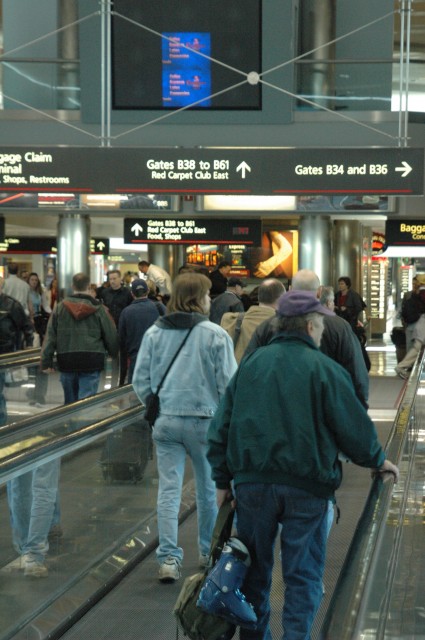
Post by Kyle St. Romain.
I recently returned from a short trip to New Orleans, and I’ll be the first to tell you that I really enjoy traveling. Breaking up the daily routine, taking in new sights, meeting new people, and eating exotic foods are all check marks that keep me eager to explore the world. However, the inevitable downside of traveling (especially if you’re destination is overseas or cross-country) is jet lag. Even traveling across two or three time zones is enough to throw your body off, and nothing puts a damper on your day like a bad night’s sleep—especially if your body is confused about when it’s supposed to sleep in the first place. Fortunately, there are a number of tips and tricks that can help you avoid the effects of jet lag and make the most of your vacation.
What is jet lag?
Jet lag is a relatively new phenomenon brought on by the advent of commercial air travel. In the medical community jet lag is known as desynchronosis, which is a physiological condition resulting from rapid travel across multiple time zones. Jet lag isn’t caused by the act of flying on a jet; rather, it is purely due to your body trying to adjust to a different sunrise/sunset schedule than you’re used to at home.
How to avoid jet lag
Jet lag affects people differently, and the amount of time your body needs to readjust depends on a number of factors. The general rule, however, is that you should allow one day per time zone crossed to let your body adjust to its new schedule. If you’re traveling from New York to Los Angeles, for example, which has you cross 4 time zones, you often don’t have 4 days to get back in the swing of things. Fortunately, there are some steps you can take to minimize the effect of jet lag.
While none of these recommendations are a surefire way to avoid jet lag, they are certainly worth a try—especially if it means feeling rested and ready to make the most out of your travel adventure.
- Drink plenty of water. When traveling on a plane, you are more susceptible to dehydration, which can result in a general feeling of fatigue. This one is pretty easy to avoid, and you should be drinking lots of water regardless of your travel schedule to improve your overall health. Drinking alcohol on a plane makes you more susceptible to dehydration, so save your Mai Tai’s for the beach.
- Exercise before your flight. Regular exercise can help you sleep better in general, and is even more important for long-haul flights. Since you’re stuck on the plane anyway, you might as well try to recharge your batteries before arriving at your destination. While sleeping on a plane will never make up for a good night’s rest in your own bed, neck pillows and blankets can help make you more comfortable on the plane.
- Fight your usual routine (don’t sleep during the day). If you land at night, then you should go to sleep and wake up as usual. However, if you land during the day it’s important to fight the urge to go to sleep and power through until a normal bedtime (for that area). This will help force your body to get used to its new schedule. Coffee (caffeine) can be helpful for powering through the first day, but don’t go overboard with it. You can also try adjusting your schedule to your destination time before your flight. Shifting your sleep schedule at home by a couple hours can help get you used to a different time zone before you depart.

For the ultimate regime, there are several apps available for download on your phone that will offer some steps you can take to combat the effects of jet lag. Many of these apps simply require you to set your home, your destination, your usual wakeup/bedtimes, and the length of your visit. Using this information, these apps will offer a number of recommendations, such as a pre-flight sleep schedule, that can help you offset the effects of jet lag.
Do you have any tips for avoiding jet lag? Let us know in the comments below.





 The Mouse and the Motorcycle by Beverly Cleary.
The Mouse and the Motorcycle by Beverly Cleary.





